Elastic Observability 9.0/8.18: Elastic Distributions of OpenTelemetry (EDOT) now GA, LLM observability, and more
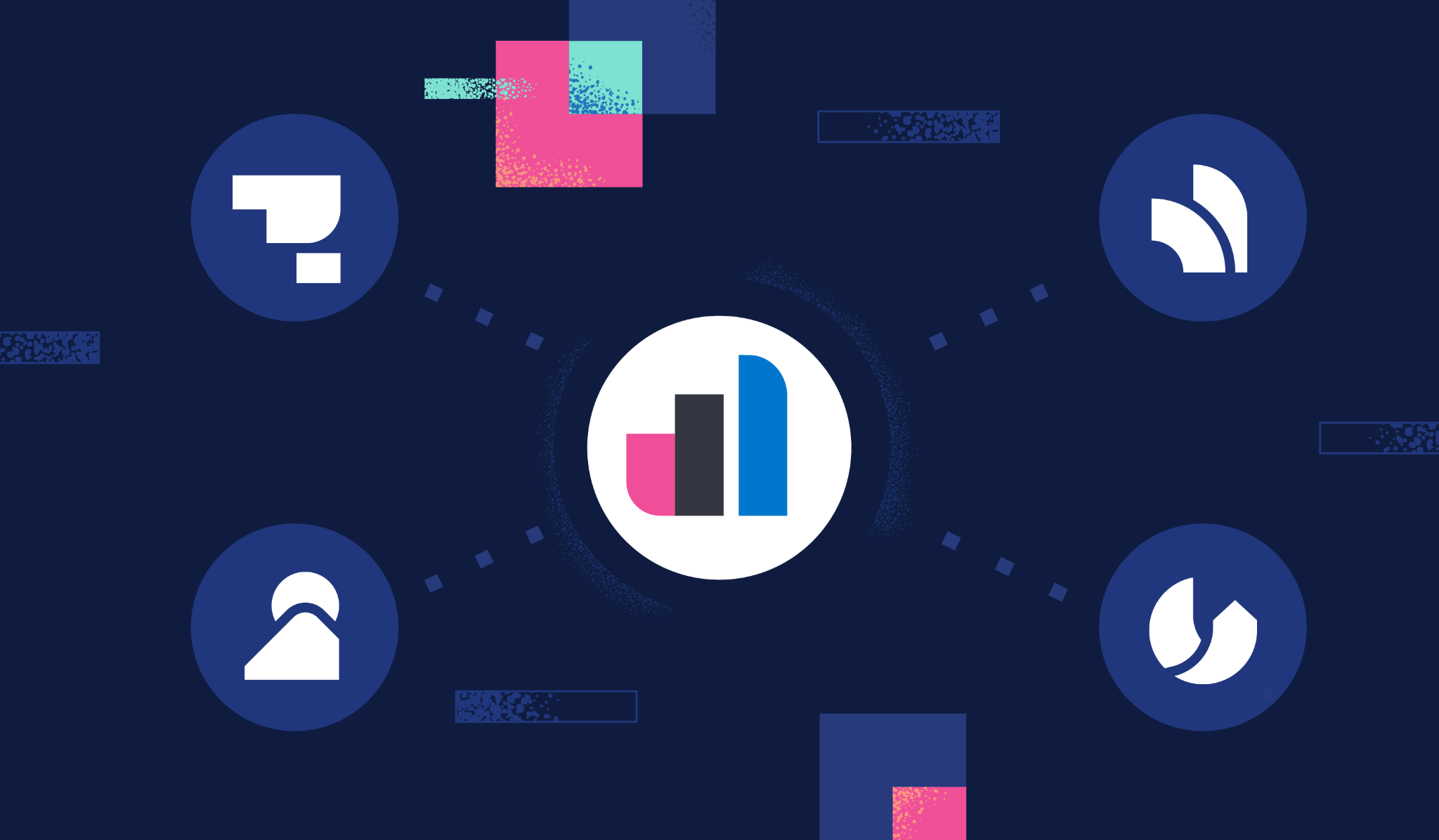
Elastic Observability 9.0/8.18 announces several key capabilities:
General availability of Elastic Distributions of OpenTelemetry (EDOT): All EDOT components (including the EDOT Collector and language SDKs for Java, .NET, Node.js, PHP, Python, iOS, and Android) are now GA, providing SREs and developers with a stable OpenTelemetry (OTel) ecosystem for production use. Preserving OpenTelemetry-native schematic conventions and resource attributes for enhanced correlation and analysis, it additionally includes fixes beyond OTel release cycles and enterprise-grade support without proprietary add-ons.
LLM observability for GenAI applications: LLM observability is now generally available, providing SREs and developers of AI-based apps the end-to-end insights they need to manage and optimize large language model (LLM) applications for performance, cost, safety, and reliability. A curated set of observability signals along with preconfigured dashboards provide comprehensive insights for all major LLMs, including Azure OpenAI, AWS Bedrock, Google Vertex AI, and OpenAI. This is a crucial capability for SREs because it provides visibility, traceability, and control over the behavior, performance, and potential failures of applications that integrate with LLMs.
Additional enhancements include: performance and security enhancements to Logstash, Elastic Agent support for AWS EKS, and enhancements to Discover.
Elastic Observability 8.18 and 9.0 is available now on Elastic Cloud — the only Elasticsearch offering to include all of the new features in this latest release. You can also download the Elastic Stack and our cloud orchestration products — Elastic Cloud Enterprise and Elastic Cloud for Kubernetes — for a self-managed experience.
What else is new in Elastic 9.0/8.18? Check out the 9.0/8.18 announcement post to learn more.
General availability of Elastic Distributions of OpenTelemetry (Collector and SDKs)
Elastic Distributions of OpenTelemetry (EDOT) is now generally available, offering a fully open, enterprise-ready distribution of OpenTelemetry with production-tested stability and expert-backed support. EDOT includes the OTel Collector and language SDKs, enabling seamless telemetry collection from applications and Kubernetes while preserving OpenTelemetry standards. Unlike vendor-locked solutions, EDOT remains fully open source, ensuring interoperability and eliminating proprietary modifications. With proactive fixes beyond standard OTel release cycles and seamless integration with Elastic Observability, EDOT provides SREs with a reliable, scalable way to adopt OpenTelemetry without operational disruptions.
EDOT is available in the Observability 9.0 release and will be compatible with versions 8.18 and 8.19, as well as Elastic Stack 9.0. Get started today with EDOT for a simplified, native OpenTelemetry experience.
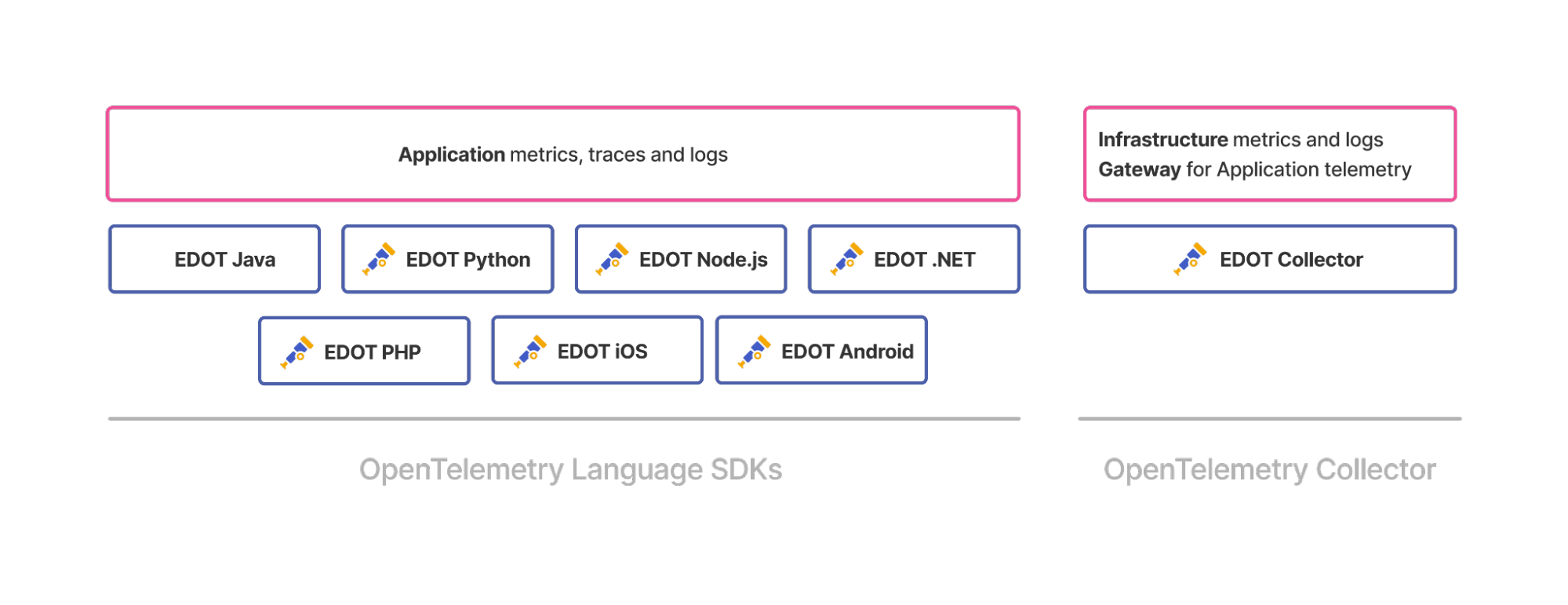
LLM observability
LLM observability integrations are GA
As businesses adopt LLMs for AI-driven tasks like content creation and data analysis, they seek more flexibility in hosting solutions. AI models introduce unique demands for monitoring and observability. Common challenges involve high operation costs, ensuring response quality and safety, and maintaining model performance and availability. Without clear visibility, it becomes difficult for SREs and DevOps teams to meet service level objectives related to reliability, performance, cost, and quality and to gather adequate telemetry data for troubleshooting.
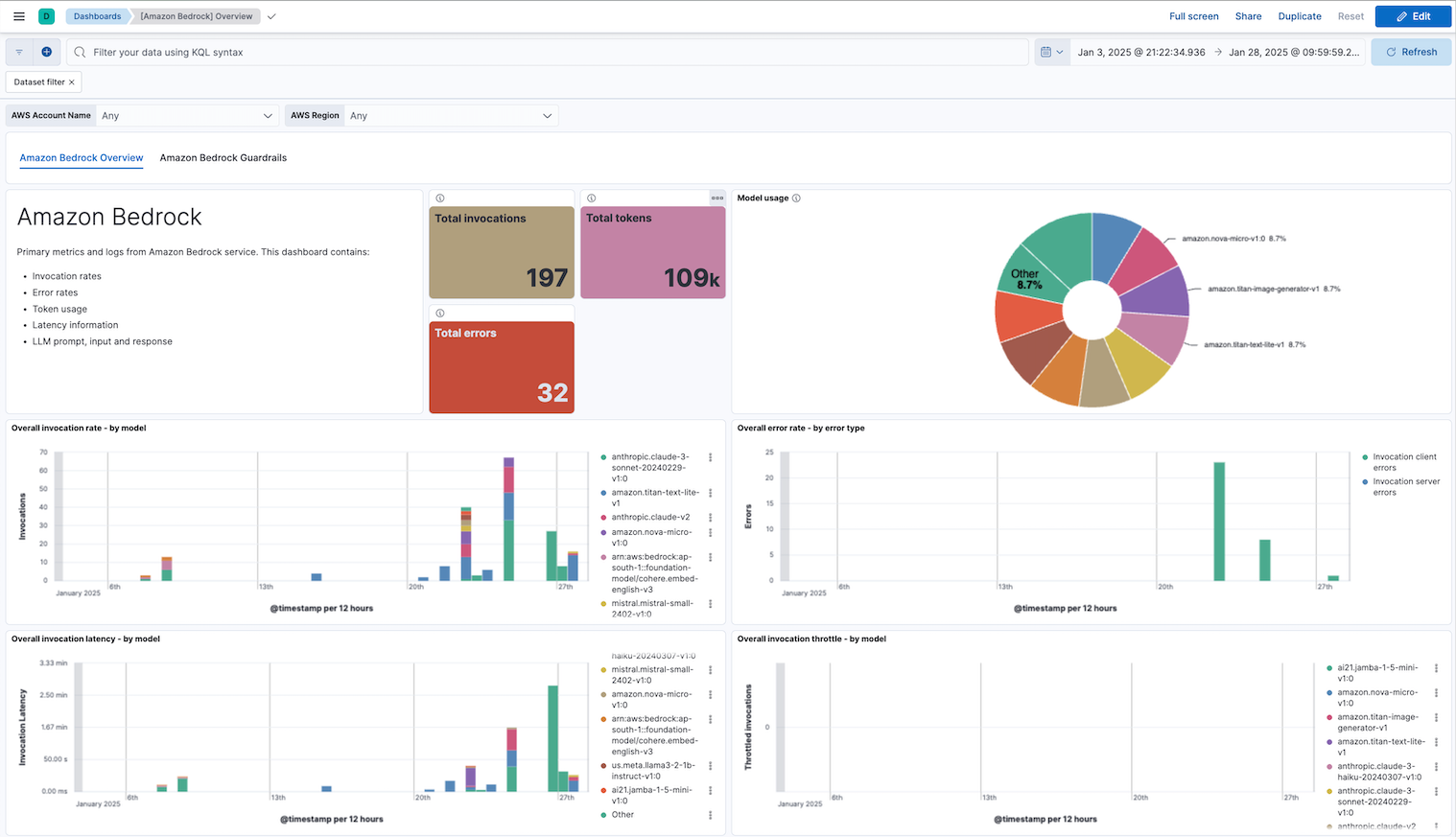
With 8.18/9.0, Elastic is announcing the general availability of four LLM observability integrations, broadening the range of platforms where models can be observed to ensure the best fit for their needs. Now customers get a curated set of metrics and logs and out-of-the-box dashboards for the most popular LLM hosting providers, including OpenAI, Azure OpenAI, and models hosted on Amazon Bedrock and Google Cloud Vertex AI. They provide deep insights into the usage, cost, and operational performance of models, including latency, errors, token usage, frequency of model invocations, and resources utilized by models, as well as prompts and responses.
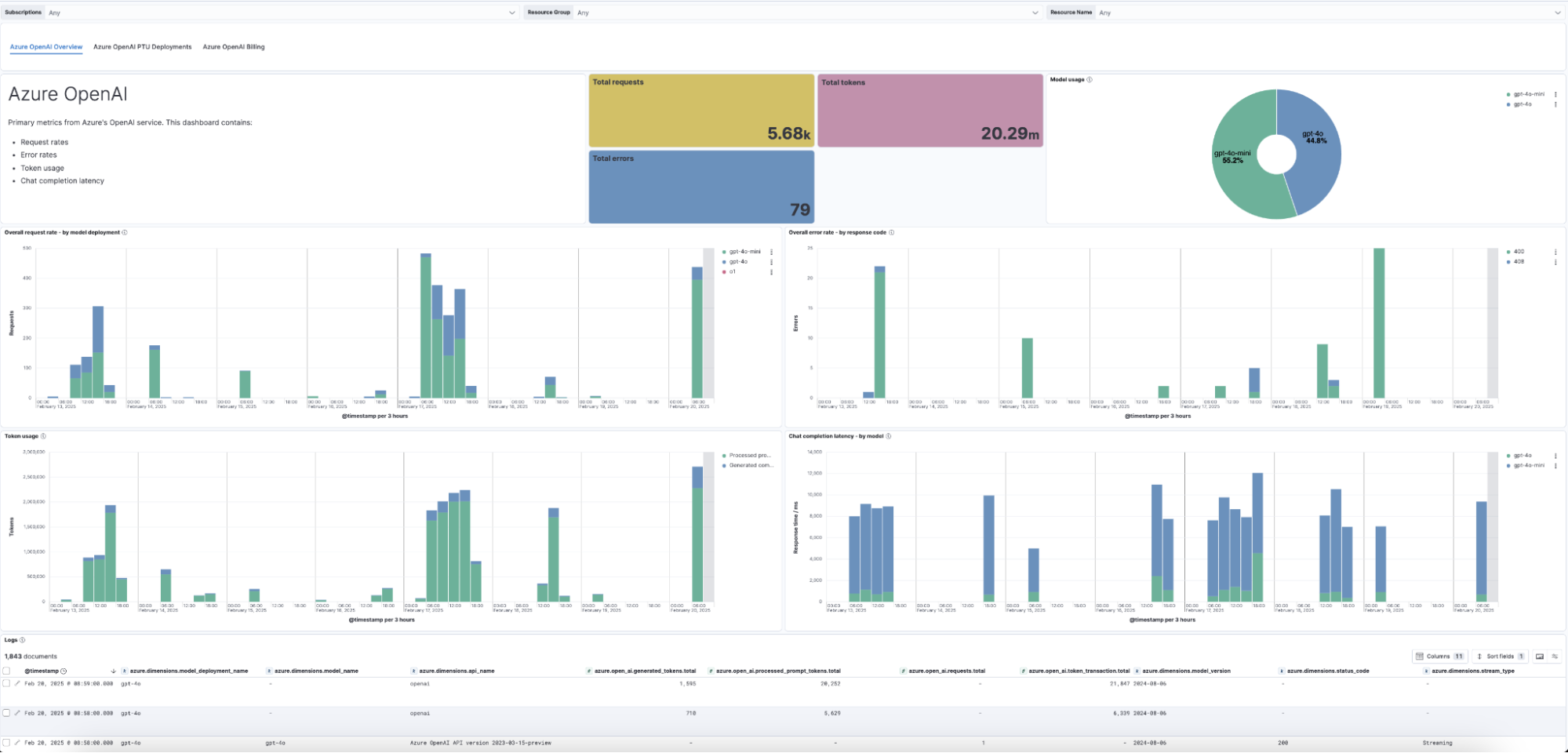
APM tracing of OpenAI-powered Python, Node.js, and Java applications with EDOT
LLM-powered applications offer unprecedented opportunities to harness the power of generative AI. The OpenAI models are one of the most popular and can be found in a myriad of applications. However, adding LLMs to applications requires a new set of observability capabilities. With the right logs, metrics, and traces, developers can answer questions like, "Which version of a model generated this response?" or "What was the exact chat prompt created by my RAG application?"
We are excited to announce our first GenAI instrumentation capability in the EDOT language SDKs: OpenAI. With this enhancement to Elastic’s APM, you can now observe generative AI applications using our Python, Node.js, and Java EDOT SDKs.

You can now see detailed trace information for your OpenAI span, including duration, tokens, and the prompt and response of the LLM.

AI safety and reliability
Customers who build GenAI powered applications want to ensure the safety and reliability of their applications, which also includes setting guardrails for hallucinations, factual incorrectness, bias, harmful content, and sensitive data leaks. With the enhancement of Elastic’s Amazon Bedrock integration with support for Amazon Bedrock Guardrails, you can monitor key aspects of safety and reliability controlled by configurable safeguards.
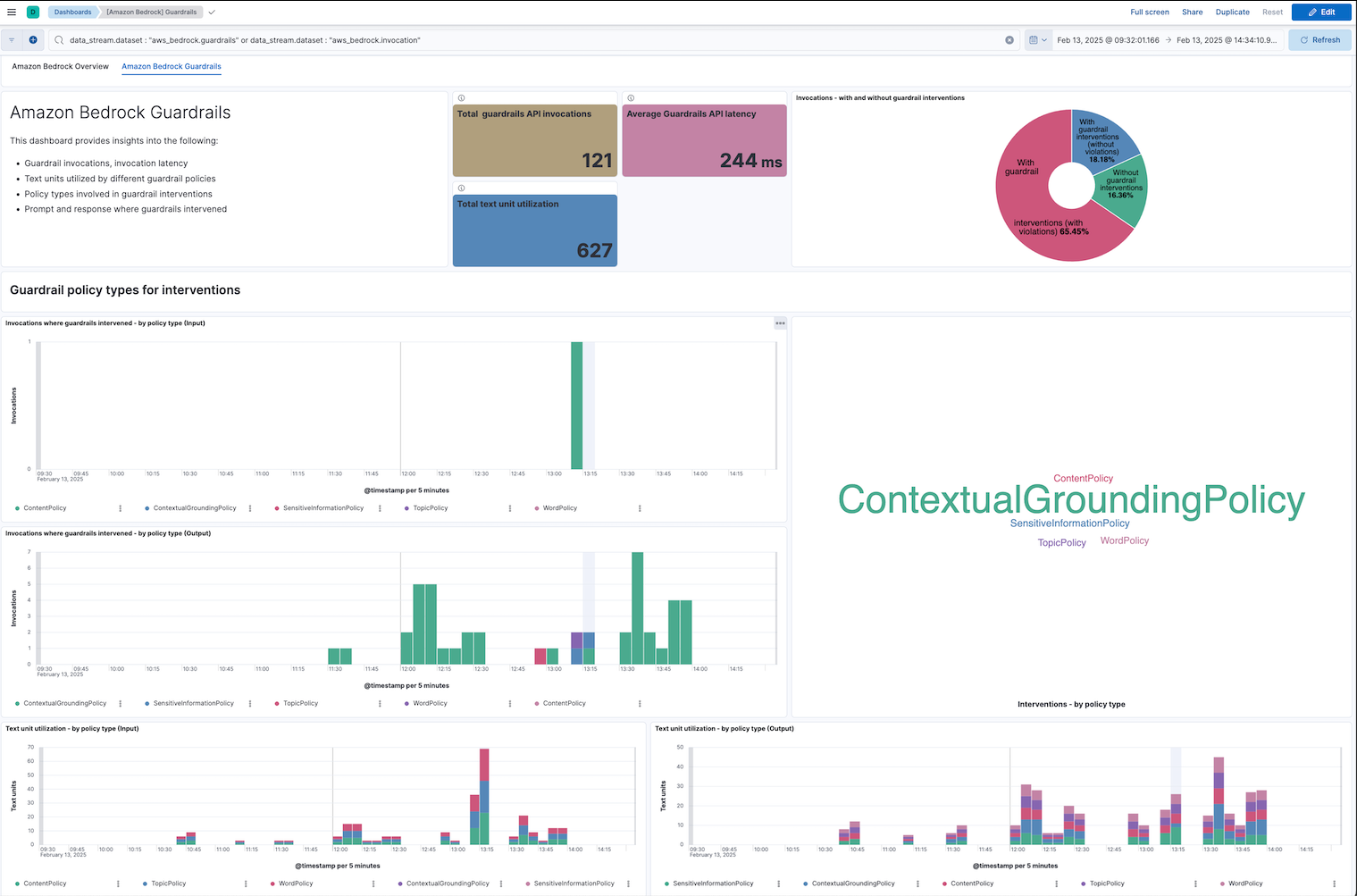
Elastic Security bolsters these capabilities by additionally providing the ability to audit LLMs for malicious behavior such as prompt injections.
Logstash improvements for performance and security
The persistent queue writes events to disk in order to prevent data loss in the event of failure. We’ve enhanced deserialization, which enables you to write large events 5x faster. Additionally, we’ve added new authentication features for two popular plugins. You can now use IAM roles for service accounts to authenticate with the AWS integration, simplifying access management and enhancing security. The Kafka integration now supports OAuth and SASL, providing more flexible and secure authentication options for Kafka users.
Elastic Agent and AWS Elastic Kubernetes Service (EKS)
Elastic Agent containers versioned 8.18 & 9.0 will now be available as an EKS add-on option for AWS Elastic Kubernetes Service (EKS) users. This addition to the marketplace enables Elastic Agent users to easily deploy an Elastic Agent container and seamlessly integrate it into their EKS cluster.
Goodbye Logs Explorer and Logs Stream, Hello Discover
Since its early days, Kibana Discover has been the go-to tool for exploring data, including logs. For a long time, Discover was a generic way to find data of all kinds. At times, this generic way was holding us back from making Log Analytics a great experience. So in 8.x, we introduced the Logs Explorer as a dedicated Observability feature, offering tailored log analysis capabilities, such as automatic log-level detection and improved summaries. While some users appreciated this specialized approach, most continued to rely on Discover for its flexibility and seamless support across different data sources.
Listening to this feedback, we’ve consolidated log exploration into Discover, making it the single, more powerful place to analyze all your data. Over the last few minor releases, we deprecated Logs Explorer and Logs Stream, channeling our efforts into enhancing Discover with dynamic, log-specific capabilities. With 9.0, we decided to make a clean cut and remove the Explorer and Stream components in favor of this new experience.

Try it out
Read about these capabilities and more in the release notes.
Existing Elastic Cloud customers can access many of these features directly from the Elastic Cloud console. Not taking advantage of Elastic on cloud? Start a free trial.
The release and timing of any features or functionality described in this post remain at Elastic's sole discretion. Any features or functionality not currently available may not be delivered on time or at all.
In this blog post, we may have used or referred to third party generative AI tools, which are owned and operated by their respective owners. Elastic does not have any control over the third party tools and we have no responsibility or liability for their content, operation or use, nor for any loss or damage that may arise from your use of such tools. Please exercise caution when using AI tools with personal, sensitive or confidential information. Any data you submit may be used for AI training or other purposes. There is no guarantee that information you provide will be kept secure or confidential. You should familiarize yourself with the privacy practices and terms of use of any generative AI tools prior to use.
Elastic, Elasticsearch, and associated marks are trademarks, logos or registered trademarks of Elasticsearch N.V. in the United States and other countries. All other company and product names are trademarks, logos or registered trademarks of their respective owners.